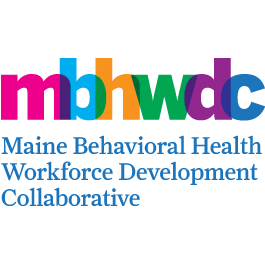Description
May 20 & 21, 2024 | 12:30-3:30pm
Description:
This presentation describes how to design systems and services based on the expectation that individuals and families will have co-occurring MH, SUD, health conditions, trauma, and other complex needs, so that all programs are “co-occurring programs” and all people providing services are “co-occurring helpers.” The presentation describes the six evidence based principles of intervention for integrated service delivery and illustrates how any individual or team can begin to apply these principles and interventions in their own program in order to have more success – and more fun – working with the people with complex challenges who need our help the most.
The workshop is in two parts. Each part is three hours, and provides an opportunity to go into detail on how the six evidence-based principles can be specifically applied to developing competency-based practice in any MH and SUD program, by any person in a helping role, with any level of licensure or training, including peers and front line staff.
Part 1: Integrated Stage-Matched Assessment, Intervention, and Treatment Planning | This part of the presentation defined co-occurring MH/SUD conditions, and describes a framework for how every program is a co-occurring program and every person becomes a co-occurring helper, based on the six evidence based principles above. The principles are reviewed and then there is a more detailed explanation of the first three principles, related to welcoming, identifying multiple issues, differentiating between different types of MH and SU issues, and then engaging the person in empathic, hopeful, integrated strength-based relationships. This will lead to discussion of integrated longitudinal strength-based assessment, and how to use that process to create the foundation for a successful partnership with clients in a way that can help them make progress on both issues over time.
Part 2: Integrated Stage-Matched Skill-based Interventions for Individuals and Families with Co-occurring Conditions | The second part builds on the material presented in the first part to provide participants more details for how to move from engagement and identification of issues to developing specific intervention plans. This includes understanding how to provide integrated interventions (medication and non-medication) for both types of issues, how to identify stage of change for each issue, and a deeper explanation of how to perform stage matched interventions, concluding with examples of skill building, using practical learning strategies, skill manuals, and positive contingency management. The session will conclude with a review of the 12 steps of competency for helping staff, and how staff and supervisors can make progress in improving co-occurring competency together, and in designing their programs and services to provide best matched integrated services to the individuals and families they serve.
Objectives:
1. Understand the concepts of co-occurring capability and co-occurring competency
2. Learn the six principles of successful intervention and the interventions connected to each.
3. Practice specific strategies for creating welcoming, hopeful, integrated strength-based partnerships with individuals and families with co-occurring MH/SUD
4. Understand the difference between painful feelings and mental illnesses of varying severity, as well as the difference between substance use, misuse, and SUD
5. Know the basics of performing an integrated longitudinal strength-based assessment.
6. Learn how to provide “integrated dual primary treatment interventions” in small steps over time.
7. Understand the basic principles of psychopharmacology for both MH and SUD conditions for individuals with co-occurring disorders.
8. Identify stage of change for each condition and the basic competencies for stage-matched interventions.
9. Know the importance of teaching people “HOW” to follow their recommendations for each condition by skill-teaching.
10. Be familiar with the 12 steps of competency for staff and how to assess and improve one’s own competency using the 12 Steps.
Presenter:
 Kenneth Minkoff, MD | Dr. Minkoff is Vice President and Chief Operating Officer Senior at ZiaPartners, Inc., a behavioral health system consultation firm in Tucson, AZ. He is Board-Certified as an addiction psychiatrist and community psychiatrist, a Board Member and Products and Services Committee Chair of the American Association for Community Psychiatry and CoChair of the Community Psychiatry Committee of the Group for Advancement of Psychiatry, a member of the National Council’s Medical Director Institute, a contributor to the ASAM Patient Place Criteria and consultant to the National Council Centers of Excellence on Integrated Care and CCBHCs among many other leadership roles. Dr. Minkoff has been recognized as a national and international leader in the strategic development of quality-driven managed behavioral healthcare systems and integrated services and systems for complex populations for over 25 years through the development of the Comprehensive Continuous Integrated System of Care approach. The vast majority of Dr. Minkoff’s work (with Dr. Cline, as ZiaPartners, Inc.) relates to helping systems reorganize themselves within limited resources at every level to meet the needs better and inspire the hopes of individuals and families with complex and co-occurring issues that need help. Over the past years, Dr. Minkoff and Dr. Cline have worked with systems integration activities that involve MH and SUD integration, health and behavioral health integration, integration of behavioral health and cognitive disability services (intellectual/developmental disability and brain injury) along with integration and collaboration with services that relate to the social determinants of health.
Kenneth Minkoff, MD | Dr. Minkoff is Vice President and Chief Operating Officer Senior at ZiaPartners, Inc., a behavioral health system consultation firm in Tucson, AZ. He is Board-Certified as an addiction psychiatrist and community psychiatrist, a Board Member and Products and Services Committee Chair of the American Association for Community Psychiatry and CoChair of the Community Psychiatry Committee of the Group for Advancement of Psychiatry, a member of the National Council’s Medical Director Institute, a contributor to the ASAM Patient Place Criteria and consultant to the National Council Centers of Excellence on Integrated Care and CCBHCs among many other leadership roles. Dr. Minkoff has been recognized as a national and international leader in the strategic development of quality-driven managed behavioral healthcare systems and integrated services and systems for complex populations for over 25 years through the development of the Comprehensive Continuous Integrated System of Care approach. The vast majority of Dr. Minkoff’s work (with Dr. Cline, as ZiaPartners, Inc.) relates to helping systems reorganize themselves within limited resources at every level to meet the needs better and inspire the hopes of individuals and families with complex and co-occurring issues that need help. Over the past years, Dr. Minkoff and Dr. Cline have worked with systems integration activities that involve MH and SUD integration, health and behavioral health integration, integration of behavioral health and cognitive disability services (intellectual/developmental disability and brain injury) along with integration and collaboration with services that relate to the social determinants of health.
Contact hours:
6 contact hours for social workers, licensed clinical professional counselors, and behavioral health professionals
6 category I contact hours for psychologists. CCSME is a pre-approved sponsor and provider of Professional Education Activities for Psychologists.
6 contact hours for Alcohol and Drug Counselors pending approval from the Maine Board of Alcohol and Drug Counselors.
6 contact hours for CHES. CCSME is a designated provider of continuing education contact hours (CECH) in health education by the National Commission for Health Education Credentialing, Inc.
This training is intended for Maine residents or those who work in Maine. Attendees are required to be present for 100% of both training sessions and complete the course evaluation in order to receive a certificate. Partial credit will not be awarded.





